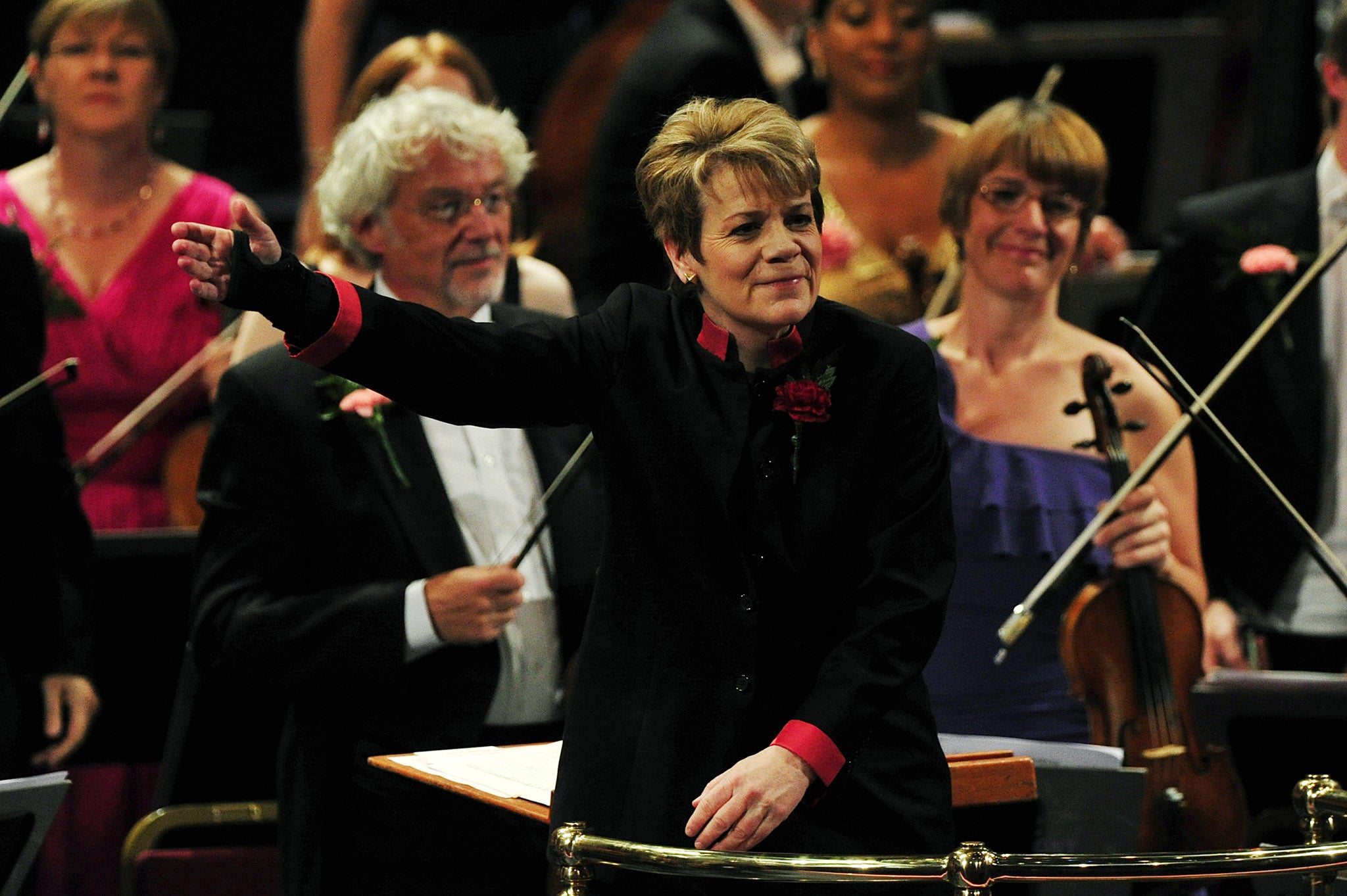The Last Night of the Proms should be making news
Marin Alsop must use her speech to set the agenda on classical music


Your support helps us to tell the story
From reproductive rights to climate change to Big Tech, The Independent is on the ground when the story is developing. Whether it's investigating the financials of Elon Musk's pro-Trump PAC or producing our latest documentary, 'The A Word', which shines a light on the American women fighting for reproductive rights, we know how important it is to parse out the facts from the messaging.
At such a critical moment in US history, we need reporters on the ground. Your donation allows us to keep sending journalists to speak to both sides of the story.
The Independent is trusted by Americans across the entire political spectrum. And unlike many other quality news outlets, we choose not to lock Americans out of our reporting and analysis with paywalls. We believe quality journalism should be available to everyone, paid for by those who can afford it.
Your support makes all the difference.This weekend sees the end of the Proms season and the celebrated Last Night of the Proms. The evening is best known for the rousing sing-along of "Land of Hope and Glory", flag-waving and general jollity. And there’s nothing wrong with any of that. But it should be best known for something else altogether.
This is the one evening, the one concert, where it is a tradition that the conductor makes a short speech to the audience. I’ve said many times that I wish that conductors would always speak to the audience to introduce the music. But on this night we know that it will happen. And on this night it will not be just about the music being played; the conductor has carte blanche to say whatever he or she likes. Next week it is a she, the fine American conductor, Marin Alsop. She has been the chief conductor of the Bournemouth Symphony Orchestra and knows the British music scene well.
As I say, the Last Night speech has been a tradition for many years. Yet, how many of these speeches can anyone recall? I suspect the answer is very few, if any at all. What a waste of a unique platform. This isn't a concert that is just seen at the Royal Albert Hall; it is televised to a huge audience, comprising not just classical music fans, and it is relayed to large arenas around the UK. It is ludicrous that this one chance for a classical music conductor to, effectively, address the nation is wasted on a few platitudes about how great the Proms are, or, at its most political, a passing reference to cuts in the arts.
This is a speech that could be reported in the next morning’s Sunday papers and set the agenda for cultural discussion for days or weeks to come. But for that to happen, the conductor has to say something that is worth reporting, that is truly agenda-setting.
I don’t think the Last Night conductors need or should stray beyond their specialism. Their views on the fight against ISIS are no more relevant than anyone else’s. But they should make some definitive statements about their specialism, about classical music. This is an era in which there is much debate about the nature of classical concerts and the audience for them. Should they have screens, should there be more interaction between conductor and audience, how should audiences and indeed orchestras dress, why is the audience so white, middle-class and middle-aged? Are we losing a potential young audience because of cuts to peripatetic music teaching? What, in short, is the future for classical music and the way it is presented in the UK?
The Last Night of the Proms presents an opportunity for one major classical music figure to start a national debate about their art form. It is a golden opportunity. Seize it, Marin.
Some composers can frighten the children
Among my favourite things at the Proms have been the printed programmes, which include a "family programme” for each concert, giving children a guide to the music being played. Ok, I admit that I turn to these wonderfully clear and comprehensible guides each time, rather than the adult pages. I particularly liked the opening sentence on the night that Daniel Barenboim and the West-Eastern Divan Orchestra played a Schoenberg symphony. It said of the pioneer of atonality: “Even though he died well over half a century ago, Arnold Schoenberg’s name can still make classical concert-goers’ hearts go cold with dread.” Kids, I’m here to tell you that is 100 per cent true.
Live theatre on screen can end with a bang
Many of us, most of us I think, welcome the way that live theatre transmissions to multiplexes have taken off. But perhaps we don’t always realise how different an environment the multiplex is, and that there can be interruptions you wouldn’t find in a theatre. Reader Lynne McVernon from the West Country watched a National Theatre production in a local cinema, and emails me to say: “Live broadcast to cinemas is one way of bringing our larger subsidised arts organisations to the yokel-ish masses. Unfortunately, some cinemas don’t appreciate the live theatre environment: the Odeon Exeter lent a sound track of car chases and explosions from a neighbouring screen to Tom Stoppard’s The Hard Problem.” Don’t tell Sir Tom, he’ll make it a scene in a future play.
d.lister@independent.co.uk
twitter.com/davidlister1
Join our commenting forum
Join thought-provoking conversations, follow other Independent readers and see their replies
Comments